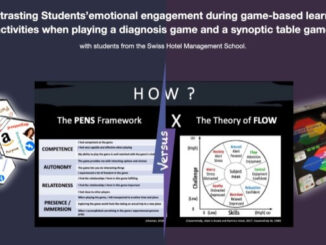
Following Windrush Day on 22nd June, we have an opportunity to reflect on the contribution and legacy of the Windrush Generation and the importance of migration to the wealth, prosperity and cultural contribution to Britain. We now need a national narrative of intergenerational learning and recognition of migration as part of our DNA.
That’s why I developed an exciting storytelling board game, Every Generation Game: Windrush Edition, to help families, friends and communities share their heritage, history, identity and culture through the telling of stories. Now I’d like to share my story about how the game came into existence and how it is being used. So, make yourself comfortable and I’ll begin…
The Beginnings
I have had a long-standing interest in researching my own family history from Wolverhampton, Jamaica and Senegal using historical records and DNA testing. I have also spent much time as a mentor to young people in Brent and Hackney. I realised that the young people, mainly boys, that I supported were disconnected with learning, their families and the wider the issue of identity and belonging.
This encouraged me to share and promote family history and intergenerational dialogue for the African and Caribbean community and in 2002 I established my website Every Generation to help me spread the message.
I then began to run workshops to engage the community around family history and reminiscing. I worked in partnership with National Archives, local museums and community organisations in promoting awareness of family history and over the past 17 years I have delivered over 200 public events plus various articles and blogs.
In the background I also had a passion for collecting ephemera especially picture postcards covering different parts of the world from 1870s to modern times and I’ve built a large personal collection of cards.
All of these things simmered away until I realised that a board game would be a great way to get people around a table talking to each other and my card collection could provide the visual prompts they need to begin a story.
I didn’t really know how to develop a ‘proper’ board game and spent lots of time tinkering with paper, scissors and glue. I then did some basic prototype work with Universal Board Games in Hackney. Then, by happy accident, I met Melvin Bell and Andy Yeoman of Focus Games Ltd at an NHS conference and I discovered that they have developed over 60 educational board games since 2004.
I described my ideas for the game to them and they happily agreed to work with me to develop and commercialise a new version of the game. After two years redesigning, formulating and testing Every Generation Game: Windrush Edition was launched in time for the 70th anniversary of the arrival of the Empire Windrush.
It is now almost a year since we launched the game and while it’s still early days the feedback we’ve had from celebrities, public, schoolteachers, museums and heritage organisations has been overwhelmingly enthusiastic and positive.
I hope the game will contribute to greater learning and understanding for everyone as fun and engaging to our shared family history of the past, present and future.
How does the game work?

The Windrush Game is a fun and inspiring activity for school or community events celebrating Windrush Day, or a games night at home with family and friends. Picture and timeline cards detailing key moments in recent UK history are used to spark storytelling, with players sharing stories of their own experiences, or using their imagination to create exciting stories inspired by the people and events depicted.
The game encourages players to recall family history, historical events and memories, in order to:
- Tell stories
- Get to know each other
- Reminisce
- Share memories and experiences
- Learn about history and family history
- Create new stories and life experiences
- Have fun!
Using photos to stimulate stories means the game can be played by people who speak different languages, are different ages and identify with different cultures. Players are encouraged to add their own photos to the game, to spark memories and stories about their own family members, friends and experiences.
Where is the game being used?
We always intended for the game to be used by lots of different people in lots of different situations and not just for family get-togethers:
- Team building and social networking The game enables people who do not know each other well to learn a little more about each other. By listening to the experiences of others, it offers a non-invasive way to talk about your own memories and learn about other people’s.
- Older people in care settings The photos and structure of the game give an opportunity for older people to reminisce and recall memories. You can introduce personal photos into the game and develop personal timelines as part of a reminiscing experience.
- People with mental health problems or learning disabilities Social care staff can play this game with service users as a social activity and an opportunity to get to know each other. It could also be played by groups of service users, facilitated by staff.
- Schools, Youth Clubs and Looked after Children The game can be used as educational resource, to inspire creativity, learning and research around the historical facts provided on the timelines. Photos and timelines can also be used as stimulus for creative writing tasks after playing the game.
The game allows all ages to play together, as everyone has the freedom to be creative and tell their own stories. It helps spark an interest in family history – you can add in your own family photos to help personalise the game
As we remember the recent national Windrush Day I hope the game will contribute to greater learning and understanding for everyone as a fun and engaging way to share our history of the past, present and future.
- Celebrating Windrush Day with The Windrush Game - 16th July 2020





Stories are such a powerful way to reflect and construct new learning, and the fact that this game uses images, means that language does not have to be barrier it sometimes is. What a wonderful idea for a game. Such a joyous way to find out more about each other.